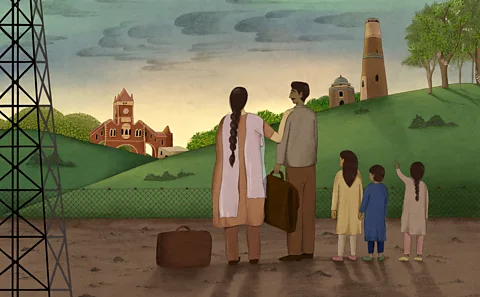The Language That Partition Stole: My Journey to Reclaim My Family’s Lost Voice

When I was eight years old in a New Delhi classroom, my teacher asked a simple question: “What languages do your families speak at home?” Growing up in one of the world’s most linguistically diverse countries, where people effortlessly switch between regional dialects and national languages, this should’ve been easy. But I only knew Hindi.
Curious, I asked my father, “What’s our family’s language?”
"Sindhi," he replied.
I froze. Sindhi? I’d never heard of it. My confusion deepened when he added, “It’s spoken in Sindh, which is in Pakistan.” How could our family language belong to a country we weren’t even from?
The answer lay in a historical wound that reshaped South Asia: the 1947 Partition of British India. As colonial rule ended, the Radcliffe Line sliced through the land, birthing India and Pakistan. This wasn’t just a political division—it fractured homes, communities, and identities. My grandmother was just 14 when she fled Sindh, leaving behind her home, her friends, and the language that held generations of our family’s memories.
In the rush to survive and adapt in a new country, Sindhi faded from our daily lives. Unlike other Indian families who preserved their regional tongues, ours became part of a silent diaspora, where language loss was the hidden cost of migration.
Now, decades later, I find myself on an unexpected mission: to reclaim Sindhi—not just as words or grammar, but as a living connection to the stories, songs, and spirit of the people we left behind.
